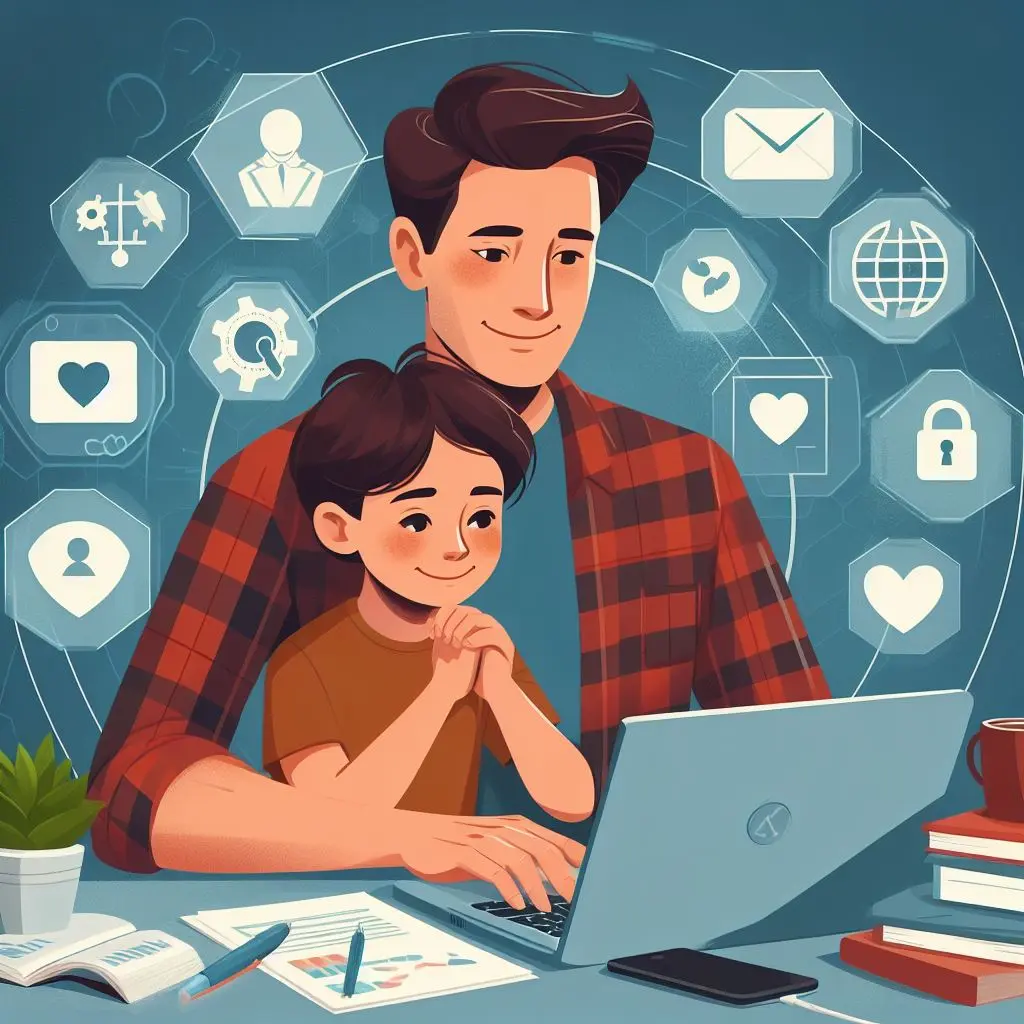
Protecting Kids/Teens in the Digital Age: How to Ensure Safe Internet Use
By: Kevin Lahey, Master Level Clinical Intern 2/6/2025
The internet truly is a wonderful thing. Information is more readily available, people can work and go to school remotely, it’s easier to communicate and stay connected with others, and we can all stay updated on current news. Obviously, there’s plenty more that can be done thanks to the internet, but, as you can likely tell from the title of this blog post, not everything the internet has made easier is a good thing. Scams and instances of hacking are more common, it’s easy to be given false information and cyberbullying is a very real issue since it’s not something everyone can just get away from.
So, with all that being said, how can we work to protect our kids and teens in the age of the internet? First and foremost, there are obviously plenty of ways for parents to block certain applications on phones and computers, and parents can even put in time limits on app usage on many devices. These are wonderful steps, but it’s important to note that these safeguards are, in a way, only bandages. To fully ensure that kids and teens are safe on the internet, it’s important to go beyond blocks and time limits and teach ideas of internet literacy and, perhaps even more importantly, build up parental/teacher/caregiver trust.
Let’s take a quick look at what having “internet literacy” looks like:
- Don’t give out personal information.
- Recognize that the internet, even if it sometimes doesn’t feel like it, is connected to our real-world lives.
- Recognize that what we do/post often lives on long after we’ve forgotten about it.
- Keep passwords long and complex.
- Take breaks – too much of something, even if it’s good, can end up being bad for you.
These are, obviously, just the tip of the iceberg when it comes to internet safety but could help to serve as a good foundation for anyone currently in the process of teaching someone how to be safe on the internet.
Finally, let’s spend a moment looking at the idea of building trust with kids/teens and how that can help improve internet safety. Ultimately, parents, teachers and caregivers can give children and teens all the most important tips and facts about internet usage and safety, but at the end of the day, mistakes can be made, and accidents happen. Beginning a child/teen’s internet usage by prefacing that, no matter what happens, they can turn to you (their parent/teacher/caregiver) for help without fear helps to keep them safe even when things don’t end up going exactly as we would have liked. Adults make mistakes, so we need to expect kids and teens to make mistakes too, just like we did when we were their age. In the end, these mistakes, when handled with grace, can serve as valuable learning experiences regarding internet safety and even areas like interpersonal communication, relationship building, and trust.
The internet can bring a lot of stressors and anxieties to the surface, even with some internet literacy in place. If you feel that you or your child could use some help working through those difficulties, don’t hesitate to reach out. All of us as Owens & Associates would love to help you in any way we can!
Set up an appointment to practice with us! Give us a call at 847-854-4333 for a free 15-minute consultation!
